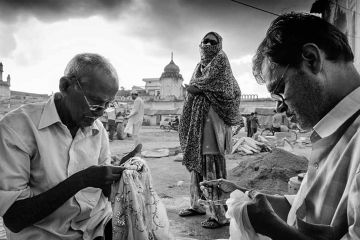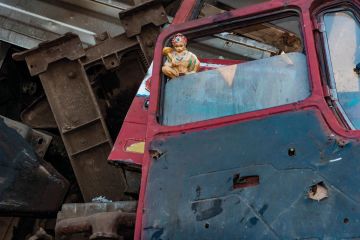Runaways from home and their families for various reasons or belonging to itinerant caste groups, Delhi is home to thousands of children living on the margins, without education, medical care or a future. Their only understanding of childhood is unrelenting toil, sometimes under the supervision of their elders but often all by themselves in frighteningly unsafe conditions for a barebones livelihood.





